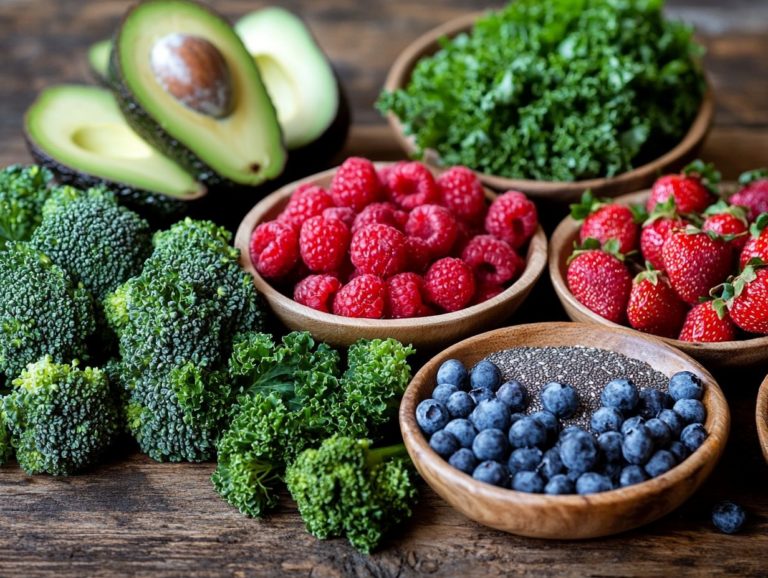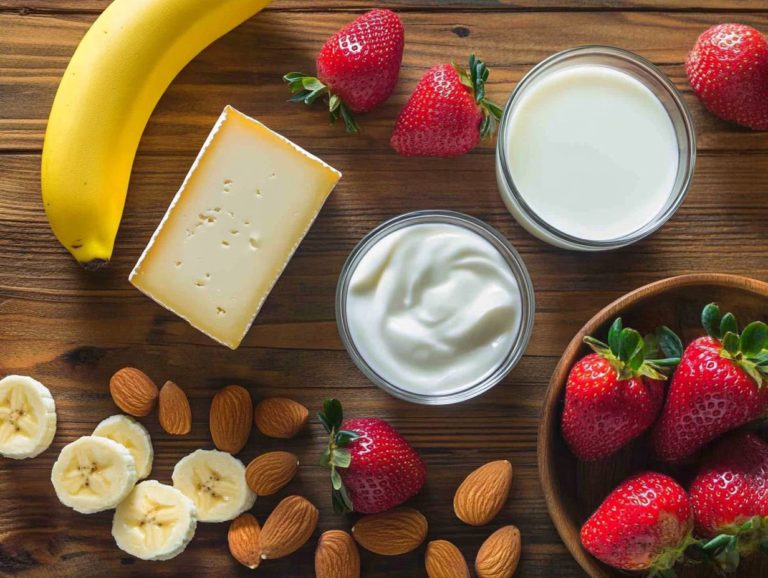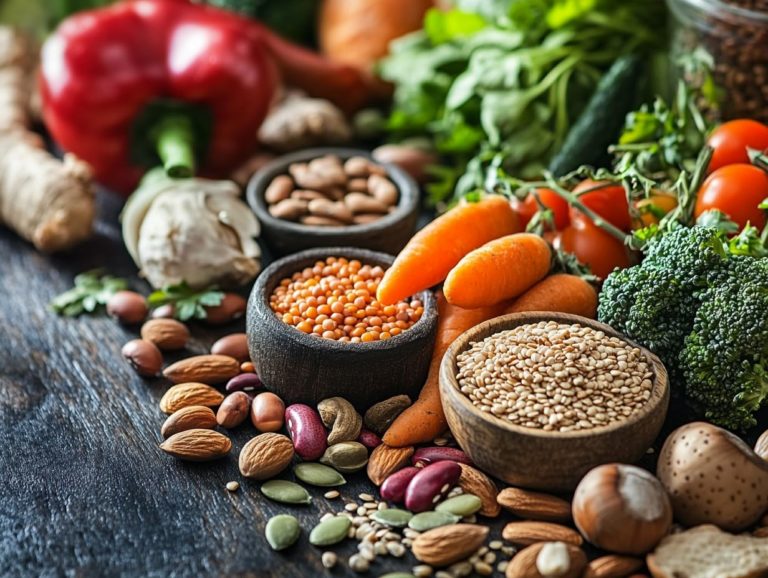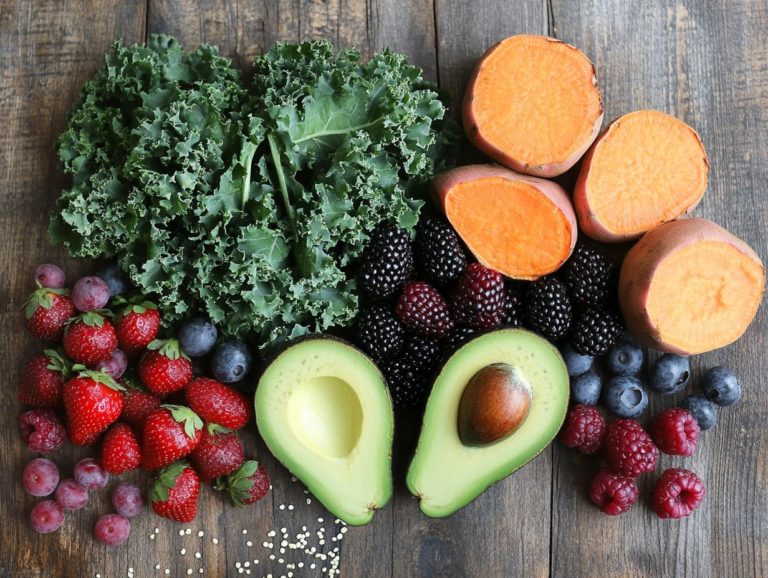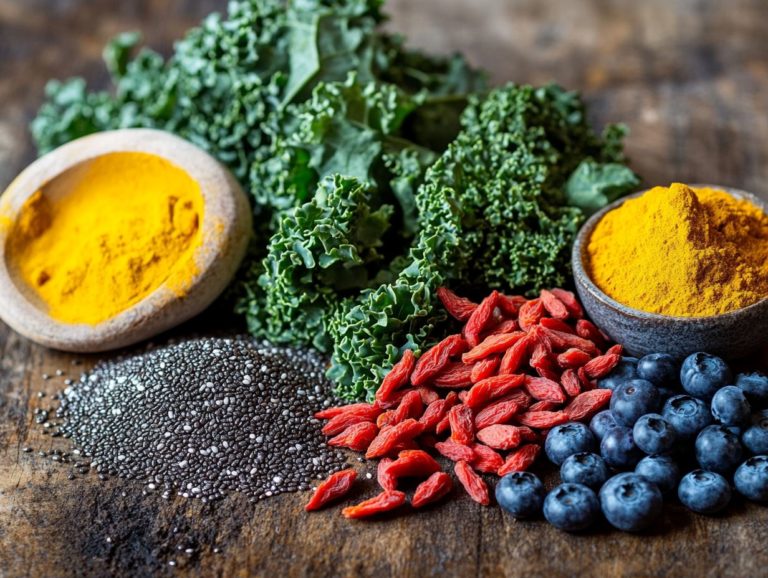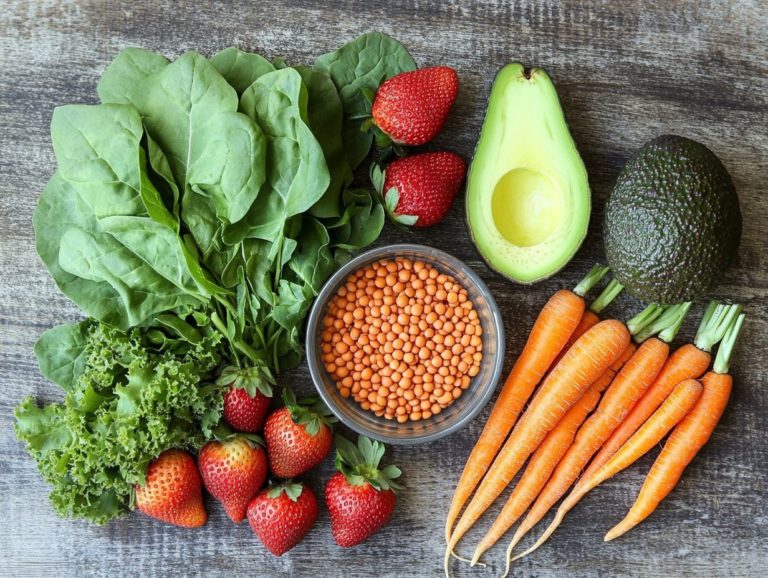What Are the Best Sources of Complete Proteins?
Complete proteins are vital for a healthy diet, providing all nine essential amino acids. These are the building blocks of proteins that our bodies need to function properly.
Knowing where to find complete proteins helps you choose better foods, whether you enjoy a juicy steak or follow a vegetarian lifestyle.
Get ready to discover both animal and plant-based sources of complete proteins! We ll also guide you on how to combine proteins for a complete profile, helping you select the best options based on nutritional value and your taste preferences.
Unlock the secrets of complete proteins now and supercharge your meals!
Contents
- Key Takeaways:
- Understanding Complete Proteins
- Animal Sources of Complete Proteins
- Plant Sources of Complete Proteins
- Combining Incomplete Proteins for Complete Protein Sources
- Choosing the Best Sources of Complete Proteins
- Frequently Asked Questions
- What Are the Best Sources of Complete Proteins?
- What Plant-Based Foods Can Provide Complete Proteins?
- What are the benefits of consuming complete proteins?
- Can I get enough complete proteins from a vegetarian or vegan diet?
- Are there any health risks associated with consuming too much protein?
- Can I supplement my diet with protein powders for complete proteins?
Key Takeaways:
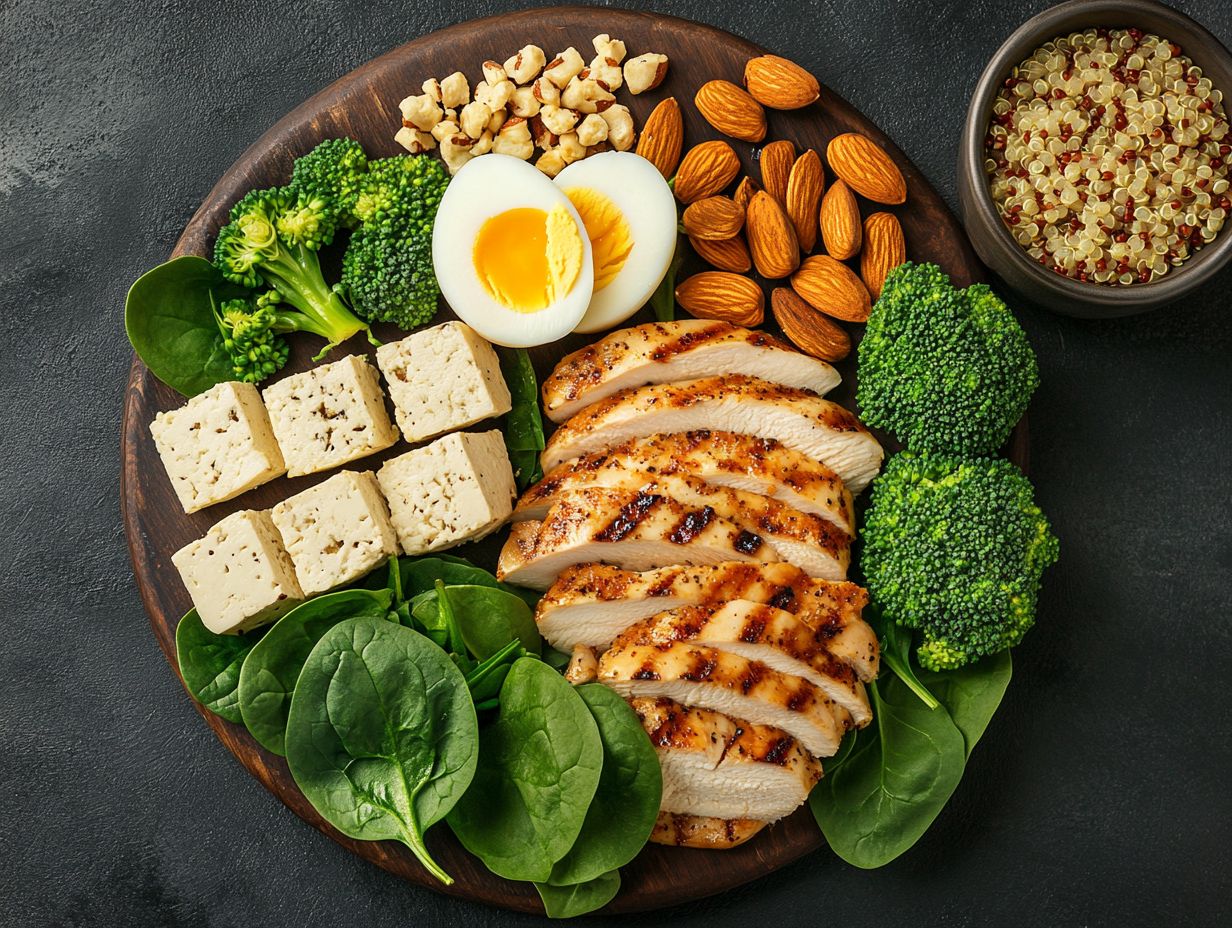
Animal sources such as meat, dairy, and eggs provide all the essential amino acids we need.
Plant-based sources can be found in legumes, grains, and vegetables, making it easier for vegetarians and vegans to meet their protein needs.
To ensure a well-rounded protein intake, combine complementary sources, such as rice and beans or hummus and pita bread.
Understanding Complete Proteins
Complete proteins are essential to a balanced diet, comprising all nine amino acids your body cannot produce on its own.
These proteins help your muscles grow strong, support protein synthesis, and play a critical role in overall bodily functions.
By understanding complete proteins, you empower yourself to make informed decisions about your nutrition, whether you’re choosing animal sources or plant-based alternatives.
This knowledge can lead to better health and optimized protein consumption tailored to your lifestyle choices.
Animal Sources of Complete Proteins
Animal sources of complete proteins are abundant, offering a wide variety of protein-rich foods.
Meat, dairy, and eggs deliver substantial protein content and essential amino acids that are vital for your health.
Incorporating these options can significantly enhance your nutritional profile.
Meat, Dairy, and Eggs
Meat, dairy, and eggs are excellent sources of animal protein, providing complete protein profiles beneficial for muscle repair and overall health.
These foods supply essential amino acids necessary for various bodily functions and also contribute nutrients like iron, calcium, and vitamins B12 and D.
For instance, red meats are rich in heme iron, which is easily absorbed by your body and crucial for oxygen transport. Dairy products not only provide protein but also calcium, which is essential for strong bones. Eggs are a fantastic option, offering high-quality protein, healthy fats, and critical nutrients like choline.
While including these animal protein sources can boost your protein metabolism and support overall wellness, it’s important to be mindful of potential health issues. For example, excessive red meat consumption has been linked to heart disease, and high dairy intake may be associated with kidney stones.
Plant Sources of Complete Proteins
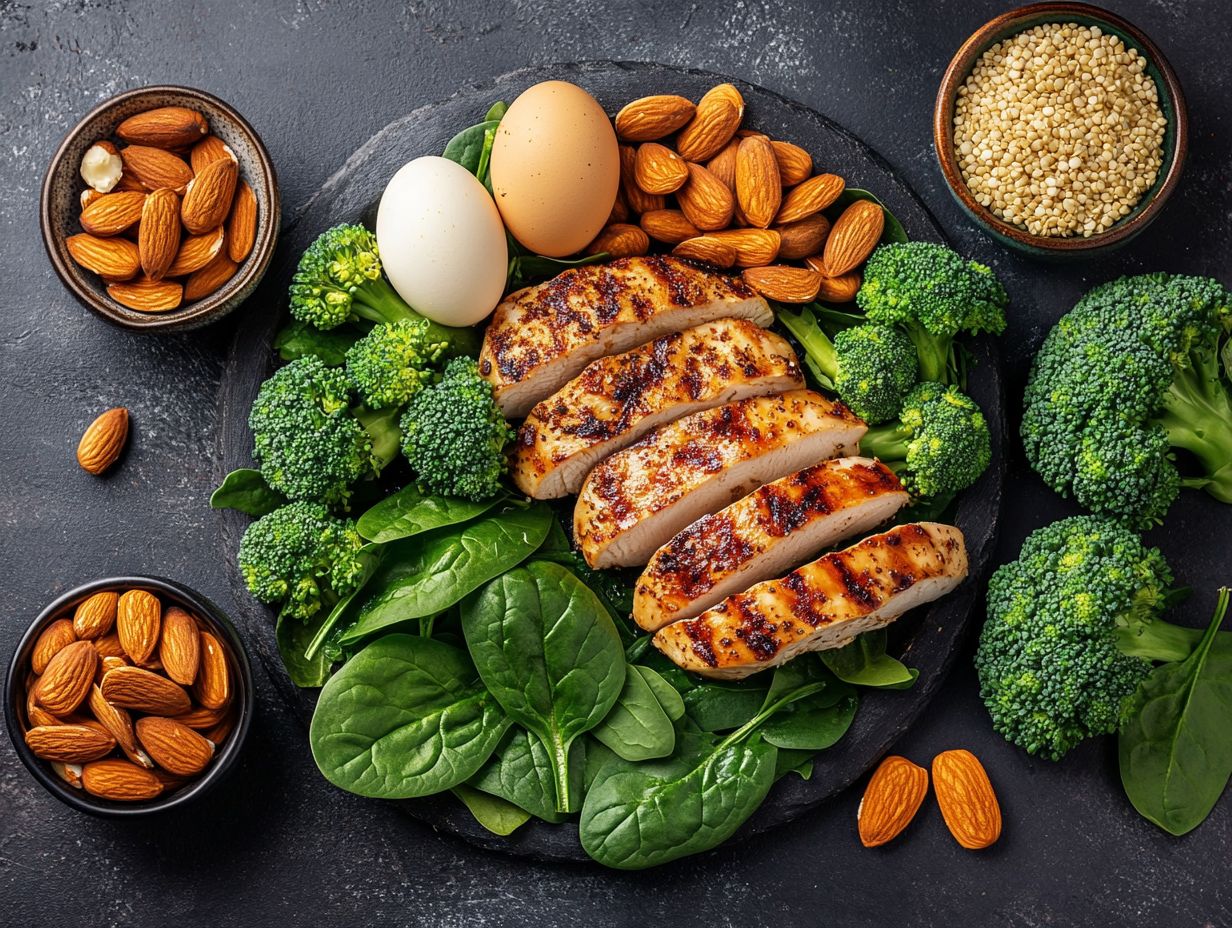
While complete proteins from plant sources are less common than their animal counterparts, they do exist.
A variety of legumes, grains, and vegetables can help you meet your protein needs if you’re following a vegetarian or vegan diet.
Embracing these options ensures you nourish your body while staying true to your dietary choices.
Legumes, Grains, and Vegetables
Legumes, grains, and vegetables are your best friends when it comes to plant-based protein sources. They offer a delightful variety for a protein-rich diet that doesn t rely solely on animal products.
These food groups elevate the aesthetic of your meals and provide essential nutrients that support your overall health. For instance, lentils and chickpeas are high in protein and packed with fiber, which is fantastic for your digestive system.
Whole grains like quinoa and farro shine with their complete protein profiles, delivering all nine essential amino acids your body can t produce on its own.
Don t overlook those green vegetables! They bring significant protein along with crucial micronutrients like iron and calcium to the table. By incorporating these diverse sources into your diet, you can effortlessly meet your protein needs while filling any nutritional gaps from a predominantly plant-based lifestyle.
Combining Incomplete Proteins for Complete Protein Sources
Combining incomplete proteins to form complete protein sources is a smart strategy for anyone following a plant-based diet.
This approach lets you enjoy a variety of foods and ensures that you meet your protein intake and variety of amino acids with ease.
Complementary Protein Pairings
Complementary protein pairings involve strategically combining different plant proteins to ensure you receive a complete amino acid profile, essential for maintaining a healthy diet.
For example, when you pair rice with beans, you create a complete protein profile, as the amino acids in one compensate for those lacking in the other.
Similarly, spreading peanut butter on whole grain bread not only elevates the flavor but also enhances protein quality, making it an outstanding choice for a snack or breakfast.
These combinations improve protein digestion and promote better absorption, contributing to your overall health.
By providing essential nutrients, they support muscle repair and help maintain energy levels throughout the day, reinforcing the importance of incorporating diverse protein sources into your daily meals.
Choosing the Best Sources of Complete Proteins
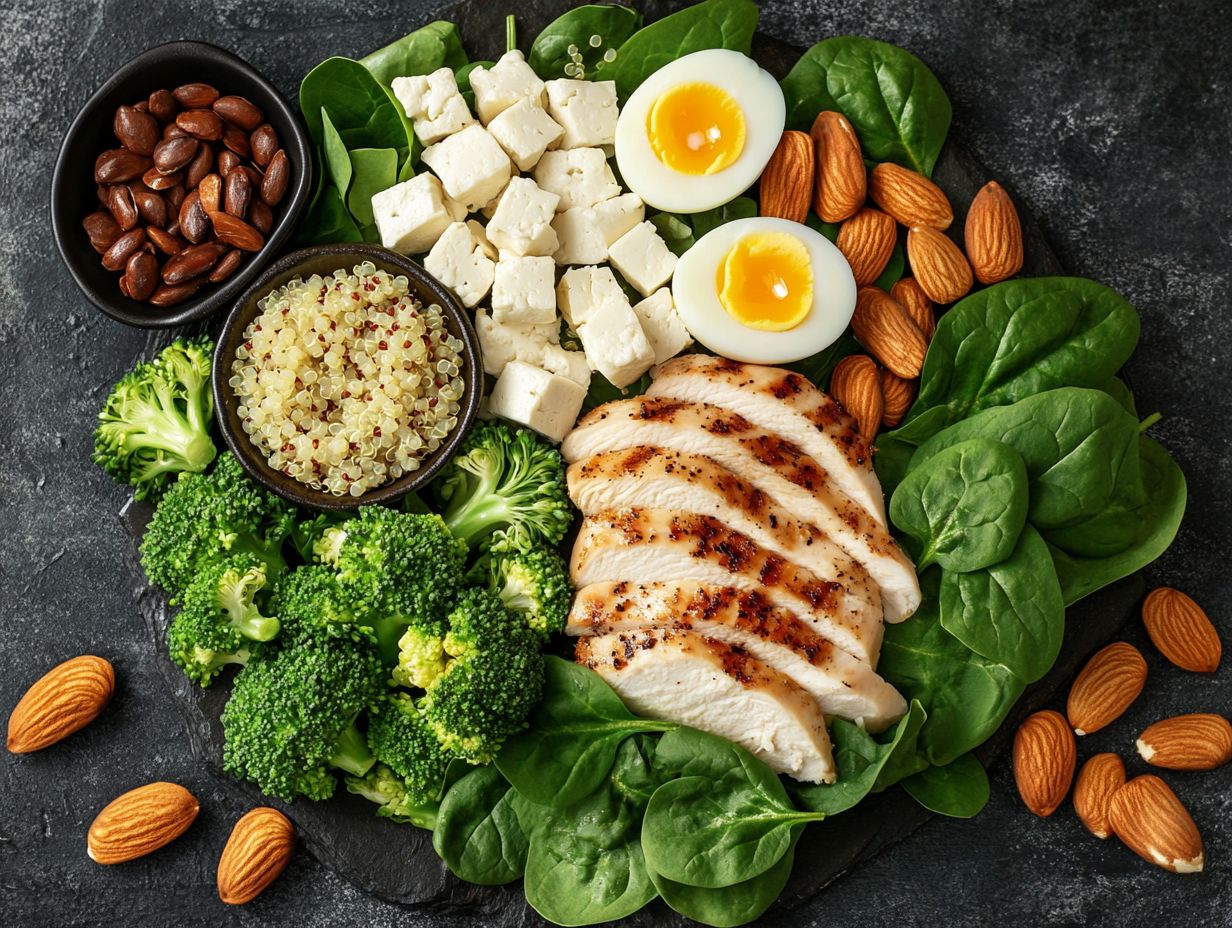
Selecting the finest sources of complete proteins requires thoughtful assessment of nutritional value, personal preferences, and dietary needs.
By doing so, you can craft a balanced diet that effectively fulfills your daily protein requirements.
Nutritional Value and Personal Preferences
Nutritional value and personal preferences are essential when selecting protein-rich foods. They guide your protein intake and dietary choices.
Understanding the nutritional quality of different protein sources can lead to improved health outcomes, impacting muscle repair, growth, and overall bodily functions.
By considering factors like amino acid profiles and bioavailability, you can prioritize high-quality proteins that offer more than just basic nutrition. Your personal tastes and ethical beliefs whether you lean towards vegetarianism, veganism, or sustainability practices shape your dietary decisions.
To seamlessly incorporate your preferred protein sources into a balanced diet, experiment with various combinations of legumes, nuts, and lean meats, paired with whole grains and vibrant vegetables. This way, you can ensure a diverse intake that meets both your nutritional needs and culinary cravings.
Frequently Asked Questions
What Are the Best Sources of Complete Proteins?
The best sources of complete proteins are foods that contain all nine essential amino acids, which are the building blocks of protein. These include animal-based proteins such as meat, poultry, fish, eggs, and dairy products.
What Plant-Based Foods Can Provide Complete Proteins?
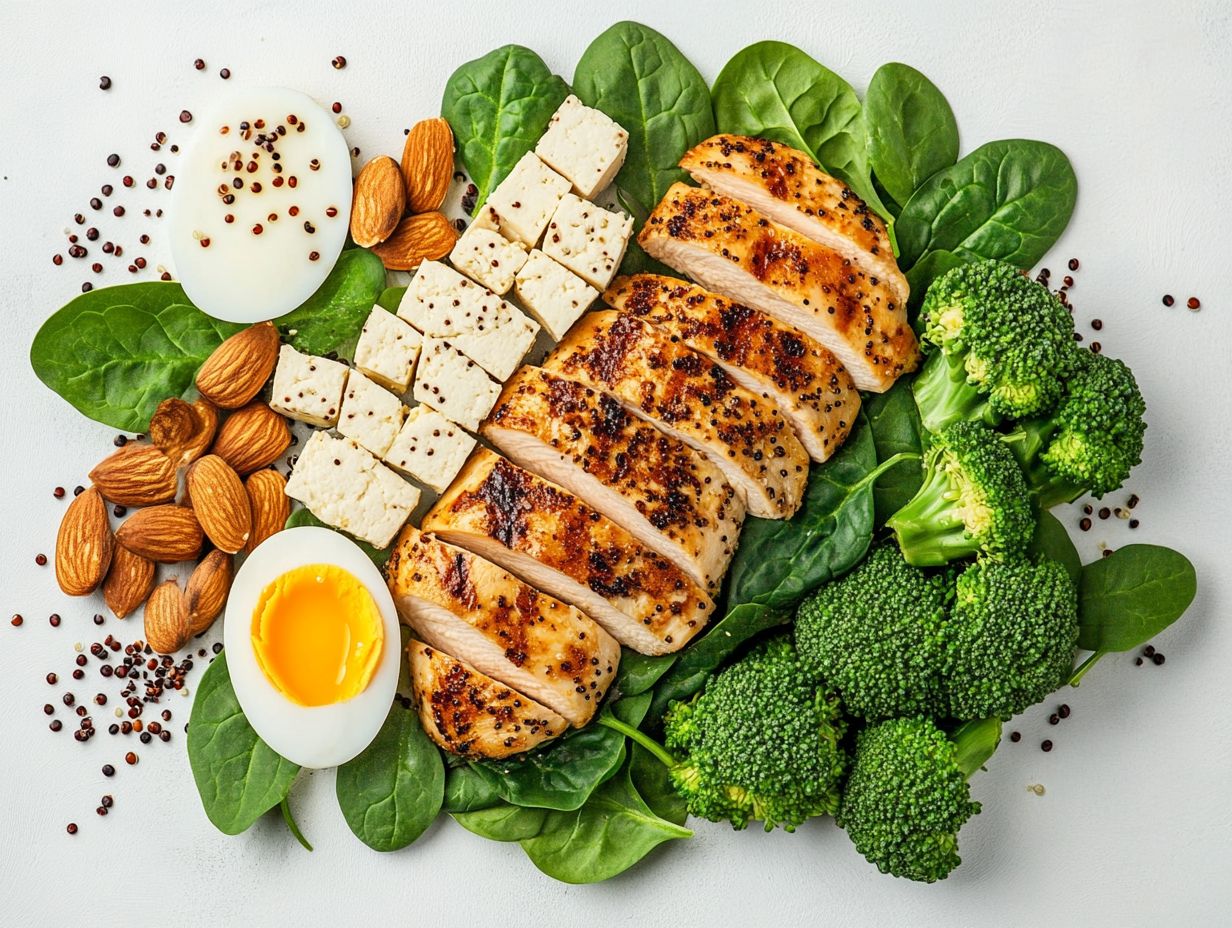
Yes, there are a few plant-based foods that are considered complete proteins, including quinoa, buckwheat, hemp seeds, and soy products such as tofu, tempeh, and edamame.
Explore more about plant-based protein sources to nourish your body and enjoy your meals!
What are the benefits of consuming complete proteins?
Complete proteins contain all the essential amino acids. They help build and repair tissues, support a strong immune system, and produce enzymes and hormones.
These proteins are also filling, which can assist with weight management.
Can I get enough complete proteins from a vegetarian or vegan diet?
Yes, you can get complete proteins from a vegetarian or vegan diet. By combining plant-based sources, like rice and beans, you can create a complete protein.
Including nuts, seeds, and legumes in your meals also helps.
Are there any health risks associated with consuming too much protein?
Excess protein can strain your kidneys. This may lead to issues like kidney stones or kidney disease.
It’s crucial to consume protein in moderation and vary your sources for a balanced diet.
Can I supplement my diet with protein powders for complete proteins?
Protein powders are a convenient way to add complete proteins to your diet. They are especially helpful for those with dietary restrictions or busy lifestyles.
Always read the labels and choose high-quality powders that are all-natural and low in added sugars or artificial ingredients.
Are you ready to fuel your body with the right proteins? Make informed choices for a healthier lifestyle!

